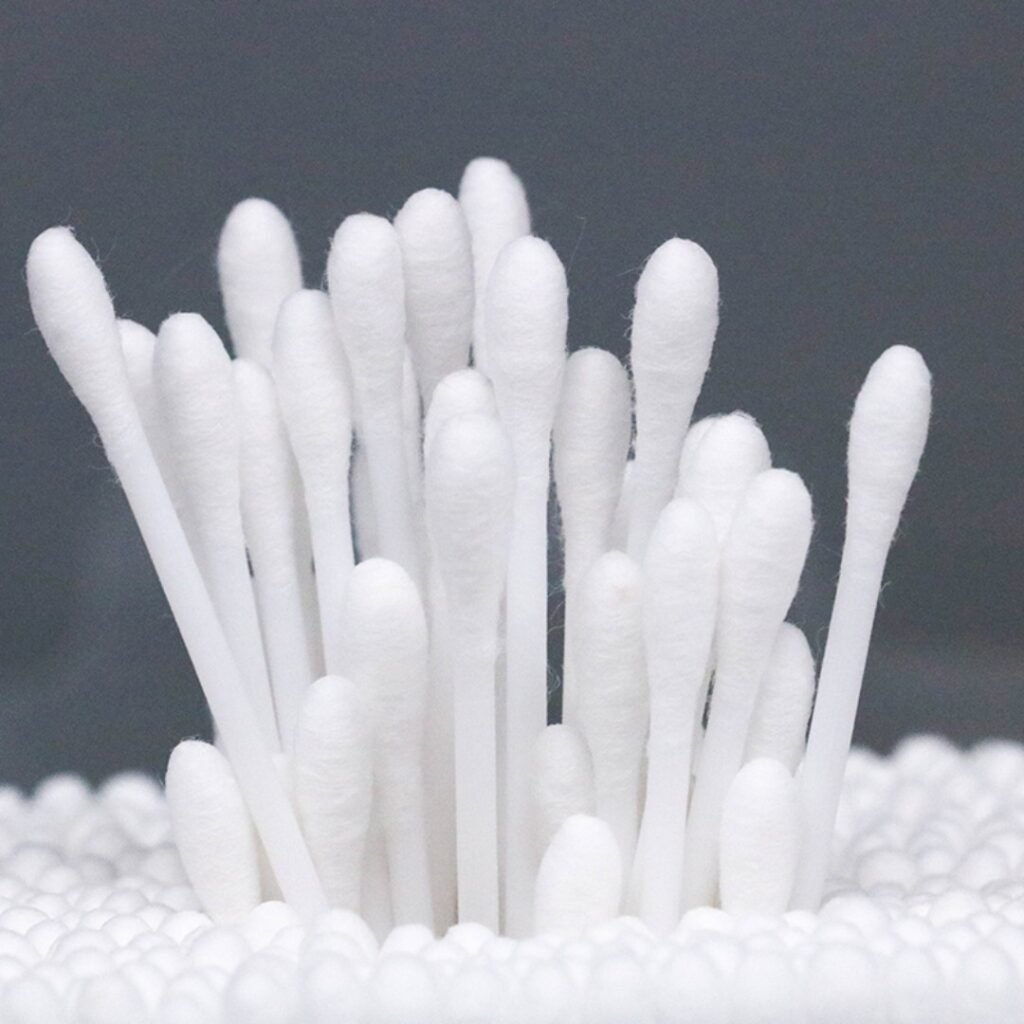
Introduction: The Cotton Bud Dilemma
Cotton buds, also known as cotton swabs or Q-tips, are essential personal care items found in households worldwide. These versatile tools serve numerous purposes, from personal hygiene and cosmetic application to medical care and precision cleaning. However, with growing environmental concerns and evolving regulations, consumers and businesses face a crucial question: which type of cotton bud is the best choice for specific needs and markets?
This article addresses this dilemma by examining the four main types of cotton buds available today: plastic stick, wooden stick, bamboo stick, and paper stick cotton buds. We’ll explore their unique characteristics, advantages, and limitations, with a special focus on plastic stick cotton buds—a product that, despite increasing restrictions in some regions, continues to serve essential functions in many markets, particularly in South America, North America, and Africa.
Key Questions This Article Will Answer:
- What are the distinctive features of plastic stick cotton buds compared to other types?
- What advantages do plastic stick cotton buds offer in specific applications?
- Why do certain markets still prefer plastic stick cotton buds despite environmental concerns?
- How is the regulatory landscape affecting the cotton bud industry?
- What makes Swabmasters a premier manufacturer of high-quality cotton buds?
Plastic Stick Cotton Buds: Features and Advantages
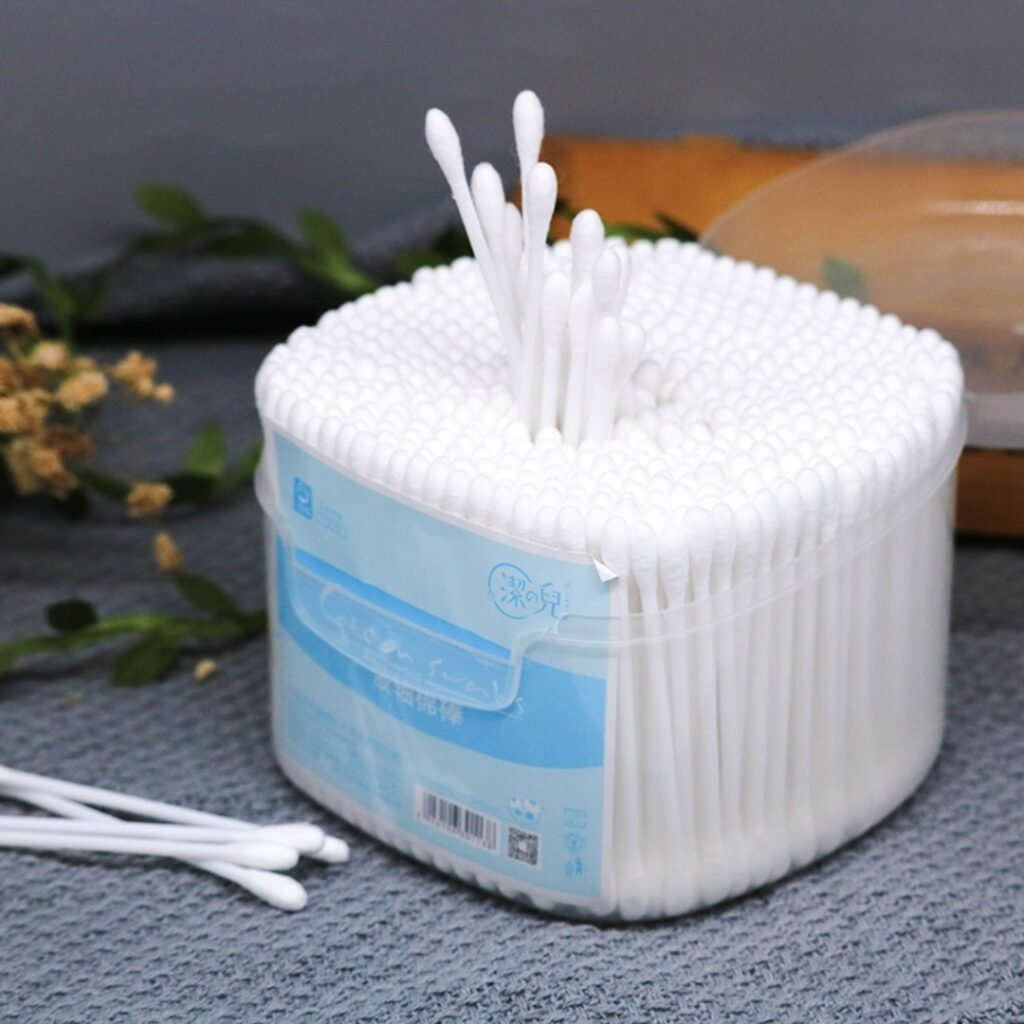
Plastic stick cotton buds have dominated the market for decades, and for good reason. These products feature a synthetic polymer shaft, typically made from polypropylene, with cotton tips securely attached to both ends. This construction offers several significant advantages:
Structural Stability
One of the most notable benefits of plastic stick cotton buds is their exceptional structural integrity. Unlike some alternatives, plastic sticks resist bending or breaking during use, providing users with precise control—a critical feature for applications requiring accuracy, such as makeup application or first aid.
Cost-Effectiveness
The mass production of plastic stick cotton buds results in lower unit costs compared to alternatives, making them more accessible to consumers across various economic backgrounds. This cost advantage has been a significant factor in their widespread adoption globally.
Color Versatility
Plastic sticks can be manufactured in various colors, allowing for color-coding systems that differentiate between products intended for different uses or markets. This visual distinction can be valuable for both consumers and professional users.
Extended Shelf Life
Plastic cotton buds have an exceptionally long shelf life, remaining stable and functional for years without degradation. This durability makes them ideal for long-term storage in first aid kits, emergency supplies, or bulk purchasing scenarios.
Environmental Impact and Regulatory Challenges
Despite their functional advantages, plastic stick cotton buds face increasing scrutiny due to environmental concerns:
Degradation Timeline
Conventional plastic cotton buds can take 500 years or more to decompose in natural environments, contributing to long-term pollution issues.
Marine Pollution
Plastic cotton buds have been identified as one of the top ten items found in marine debris, posing threats to marine life through ingestion and habitat disruption.
Microplastic Concerns
As they break down, plastic cotton buds fragment into microplastics that can enter the food chain and potentially impact ecosystems and human health.
Resource Consumption
The production of plastic cotton buds relies on non-renewable petroleum resources, raising sustainability concerns.
Regulatory Restrictions
The European Union and several other regions have implemented bans on plastic stick cotton buds, with more countries developing similar legislation.
Alternative Options: Wooden, Bamboo, and Paper Stick Cotton Buds
Wooden Stick Cotton Buds
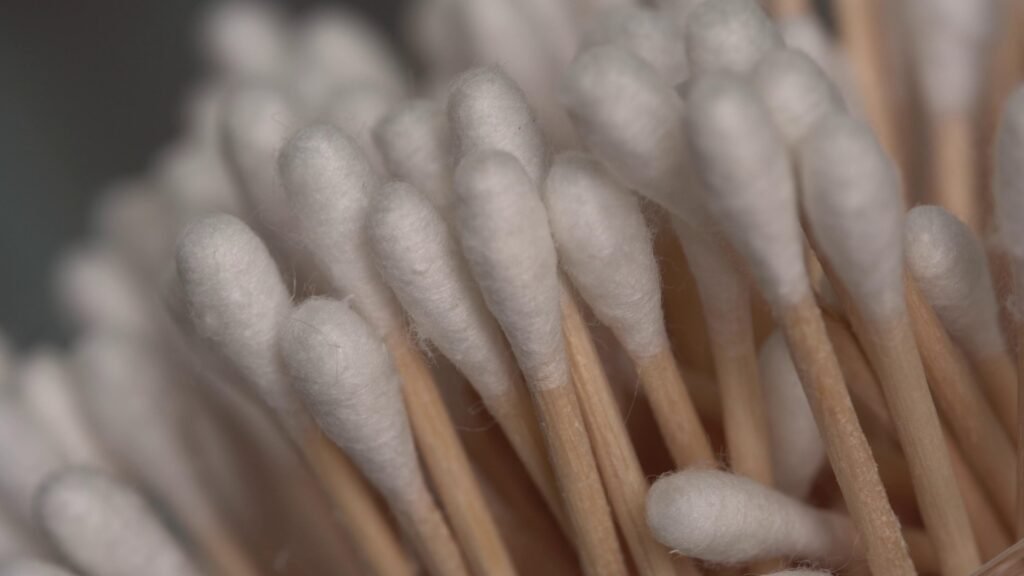
Wooden stick cotton buds offer a natural alternative with several notable characteristics:
Advantages:
- Biodegradable within months under proper conditions
- Sturdy construction for precise applications
- No microplastic pollution
- Traditional feel preferred by many users
Limitations:
- May splinter if excessive force is applied
- Less water-resistant than plastic alternatives
- Typically higher production costs
Bamboo Stick Cotton Buds

Bamboo has emerged as a popular sustainable material for cotton buds:
Advantages:
- Rapidly renewable resource (bamboo grows 3-5 times faster than timber)
- Natural antibacterial properties
- Low carbon footprint during growth phase
- Strong structural integrity
Limitations:
- Higher price
- Energy requirements for processing
- Transportation carbon footprint when shipped globally
- Potential chemical treatments for enhanced water resistance
Paper Stick Cotton Buds
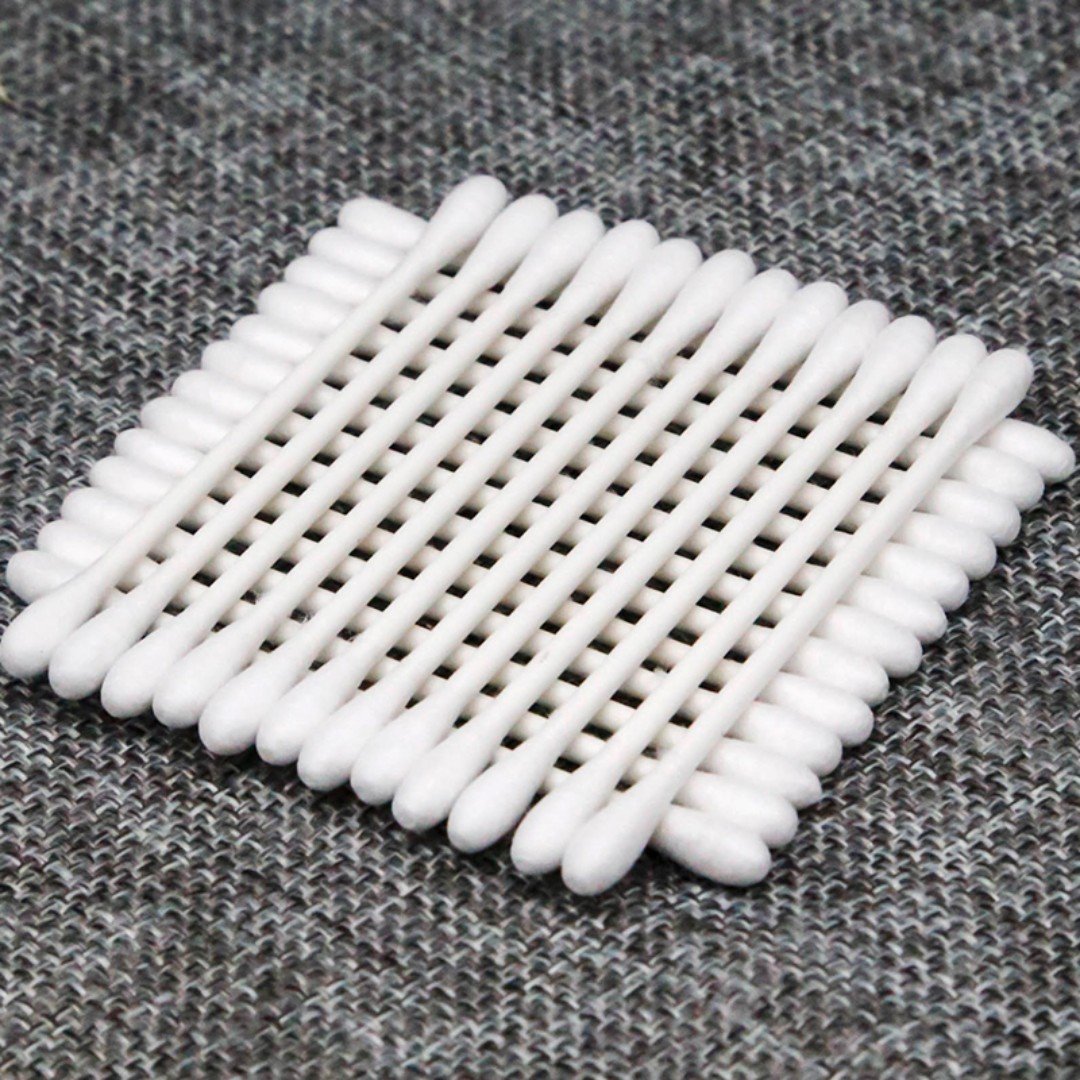
Paper stick cotton buds represent the newest innovation in eco-friendly alternatives:
Advantages:
- Rapid biodegradation (2-6 months in natural environments)
- Can be manufactured using recycled pulp
- Lower energy consumption during production
- Moderate flexibility reducing irritation risk
Limitations:
- Traditional versions may soften in humid environments
- Early products had insufficient strength (though modern compression technology has improved this)
- More complex manufacturing process
Market Landscape: Why Plastic Cotton Buds Remain Relevant
Despite environmental concerns and increasing regulations, plastic stick cotton buds continue to hold significant market share, particularly in regions like South America, North America, and Africa. Several factors contribute to their continued relevance:
Regulatory Variations
While the European Union implemented a comprehensive ban on plastic cotton buds in July 2021, many countries in South America and other regions have not yet enacted similar legislation. Colombia only recently began implementing restrictions in July 2024, while many neighboring countries still permit plastic cotton buds.
Economic Considerations
In developing markets, the lower cost of plastic cotton buds remains a significant factor influencing consumer and institutional purchasing decisions. The price differential between plastic and eco-friendly alternatives can be substantial, particularly for budget-conscious consumers.
Performance Requirements
Certain applications, particularly in medical and industrial settings, continue to benefit from the structural stability and water resistance that plastic cotton buds provide. These performance characteristics can be critical in environments where precision and reliability are essential.
Market Growth
The global cotton buds market continues to expand, valued at approximately $2.1 billion in 2023 and projected to reach $3.8 billion by 2032, growing at a CAGR of 6.2%. This growth creates opportunities for manufacturers offering diverse product options to meet varying regional requirements.
South American Demand
Latin America represents approximately 5% of the global cotton ball market, with similar representation in the cotton buds sector. The region shows robust demand driven by beauty-conscious consumers and growing awareness of personal hygiene products. As awareness regarding hygiene and beauty routines continues to grow, the Latin American market is poised to evolve, making it a crucial area for both local and global players in the cotton buds industry.
Why Choose Swabmasters as Your Cotton Bud Supplier
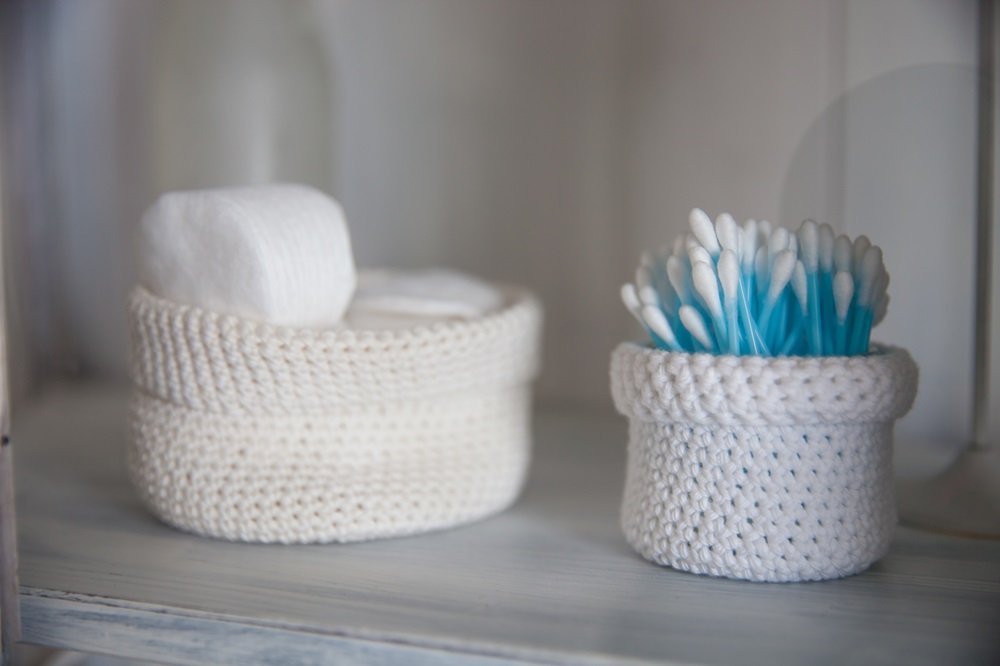
With 23 years of experience in cotton swab manufacturing, Swabmasters has established itself as a premier supplier of high-quality cotton buds across all material types. Here’s what sets us apart:
Extensive Manufacturing Experience
Established in 2000, Swabmasters brings over two decades of specialized expertise in cotton bud production. This experience translates into superior product quality and manufacturing efficiency.
Comprehensive Product Range
From plastic stick to bamboo, wooden, and paper stick cotton buds, Swabmasters offers a complete portfolio to meet diverse market needs. This versatility allows us to serve clients regardless of their specific requirements or regulatory environment.
State-of-the-Art Production Facilities
With 58 dedicated cotton swab machines and 46 additional equipment units operated by 141 experienced workers, our manufacturing capabilities ensure consistent quality and reliable supply, even for large-volume orders.
Stringent Quality Control
We implement rigorous quality assurance protocols throughout the production process, resulting in reliable, high-performance cotton buds that meet or exceed industry standards. Our commitment to quality has earned us the trust of clients worldwide.
Responsive Customer Service
Swabmasters guarantees 24-hour email response times, ensuring that client inquiries and concerns are addressed promptly. This responsive approach extends to our entire business relationship, from initial consultation to delivery.
On-Time Delivery Commitment
Our robust production capacity and efficient logistics ensure timely order fulfillment, minimizing disruptions to your supply chain and business operations.
Conclusion: Making the Right Choice for Your Market
The cotton bud landscape continues to evolve as environmental concerns, regulatory changes, and consumer preferences reshape the industry. While eco-friendly alternatives gain traction in regions with strict plastic regulations, plastic stick cotton buds remain an important product category in markets where their unique advantages address specific needs.
For businesses operating in South America, North America and Africa, and other regions where plastic cotton buds are still permitted, these products offer a combination of performance, cost-effectiveness, and consumer familiarity that can be difficult to match. At the same time, forward-thinking companies are increasingly diversifying their product offerings to include sustainable alternatives, preparing for potential regulatory changes while meeting the needs of environmentally conscious consumers.
As a manufacturer with over 23 years of experience and a comprehensive product range spanning all cotton bud types, Swabmasters is uniquely positioned to support your business regardless of your specific requirements. Whether you need traditional plastic stick cotton buds for markets where they remain in demand or eco-friendly alternatives for regions with stricter regulations, our expertise, production capabilities, and commitment to quality ensure that you receive the right products for your market.
Contact Swabmasters today to discuss how our cotton bud solutions can support your business objectives in a changing global landscape.


